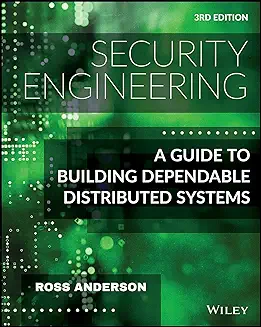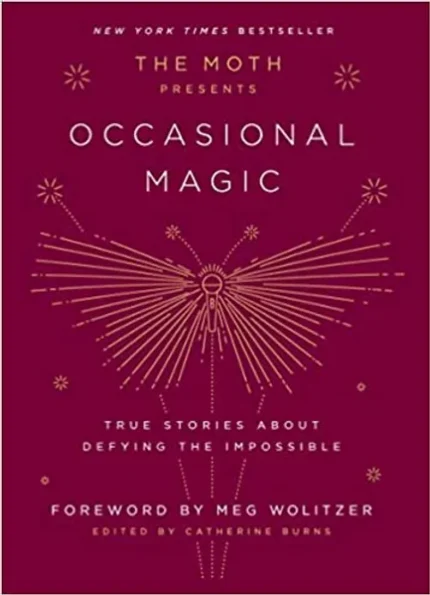Security Engineering: A Guide to Building Dependable Distributed Systems 2nd Edition
From the Publisher
From the Inside Flap
The classic book on designing secure systems
In this newly revised Third Edition of Security Engineering: A Guide to Building Dependable Distributed Systems, celebrated security expert Ross Anderson updates his best-selling textbook to help you meet the challenges of the coming decade.
Security Engineering became a classic because it covers not just the technical basics, such as cryptography, access controls and tamper-resistance, but also how they’re used in real life. Real-world case studies of the security of payment systems, military systems, the phone app ecosystems and now self-driving cars demonstrate how to use security technology in practice, and what can go wrong.
Filled with actionable advice and the latest research, this Third Edition brings a classic book up to date with the modern world of smartphones, cloud computing and AI. As everything gets connected to the Internet, security engineering has come to require inter-disciplinary expertise, ranging from physics to psychology and applied economics. Security Engineering is the only textbook on the market to explain all these aspects of protecting real systems, while still remaining easily accessible.
Perfect for computer science students and practicing cybersecurity professionals, as well as systems engineers of all sorts, this latest edition of Security Engineering also belongs on the bookshelves of candidates for professional certification such as CISSP.
You’ll learn what makes a system secure and reliable and what can render it vulnerable, from phones and laptops through cars and payment terminals to cloud services and corporate networks. You’ll find:
- The basics: cryptography, protocols, access controls and usability
- The attacks: phishing, software exploits and the cybercrime ecosystem
- The responses: biometrics, smartcards, enclaves, app stores and the patch cycle
- The psychology of security: what makes security hard for users and engineers
- The economics of security: how large systems fail, and what to do about it
- The big policy questions: from surveillance through censorship to sustainability
Security Engineering is the book that created the discipline. It will continue to define the discipline for the 2020s and beyond.
From the Back Cover
The classic book on designing secure systems
In this newly revised Third Edition of Security Engineering: A Guide to Building Dependable Distributed Systems, celebrated security expert Ross Anderson updates his best-selling textbook to help you meet the challenges of the coming decade.
Security Engineering became a classic because it covers not just the technical basics, such as cryptography, access controls and tamper-resistance, but also how they’re used in real life. Real-world case studies of the security of payment systems, military systems, the phone app ecosystems and now self-driving cars demonstrate how to use security technology in practice, and what can go wrong.
Filled with actionable advice and the latest research, this Third Edition brings a classic book up to date with the modern world of smartphones, cloud computing and AI. As everything gets connected to the Internet, security engineering has come to require inter-disciplinary expertise, ranging from physics to psychology and applied economics. Security Engineering is the only textbook on the market to explain all these aspects of protecting real systems, while still remaining easily accessible.
Perfect for computer science students and practicing cybersecurity professionals, as well as systems engineers of all sorts, this latest edition of Security Engineering also belongs on the bookshelves of candidates for professional certification such as CISSP.
You’ll learn what makes a system secure and reliable and what can render it vulnerable, from phones and laptops through cars and payment terminals to cloud services and corporate networks. You’ll find:
- The basics: cryptography, protocols, access controls and usability
- The attacks: phishing, software exploits and the cybercrime ecosystem
- The responses: biometrics, smartcards, enclaves, app stores and the patch cycle
- The psychology of security: what makes security hard for users and engineers
- The economics of security: how large systems fail, and what to do about it
- The big policy questions: from surveillance through censorship to sustainability
Security Engineering is the book that created the discipline. It will continue to define the discipline for the 2020s and beyond.
About the Author
ROSS ANDERSON is Professor of Security Engineering at Cambridge University in England. He is widely recognized as one of the world’s foremost authorities on security. In 2015 he won the Lovelace Medal, Britain’s top award in computing. He is a Fellow of the Royal Society and the Royal Academy of Engineering. He is one of the pioneers of the economics of information security, peer-to-peer systems, API analysis and hardware security. Over the past 40 years, he has also worked or consulted for most of the tech majors.
you may like .https://natashabookstore.com/books/buy-back-your-time/












Reviews
There are no reviews yet.